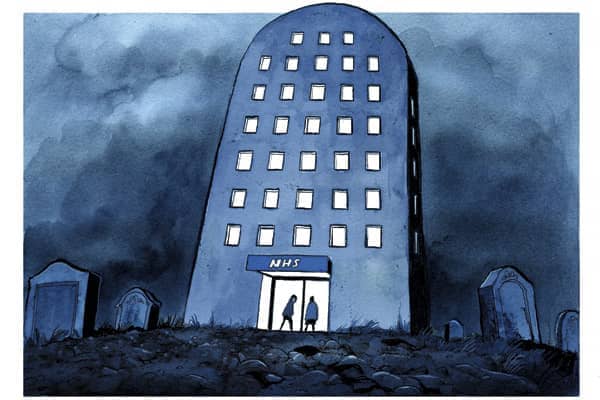If there was ever a bad time to end up in hospital, today – Black Wednesday – is it. The first Wednesday of August is changeover day in NHS hospitals. A fresh-faced cohort of junior doctors arrive on the wards ready to get their hands dirty. It’s also the day that just about every trainee doctor moves jobs.
The result can be chaotic, as teams of medics scatter and new ones arrive. Doctors who had become used to working alongside one another not only need to adjust to new teammates, but also navigate unfamiliar wards, or even relocate to entirely different hospitals altogether. It’s no wonder that patient care can take a knock.
This isn’t an issue isolated to the NHS
The Dr Foster Intelligence study first gave validation to the rumours that something was awry. The 2009 report found there was a six to eight per cent rise in patient deaths during the first week of August compared to the previous week at the end of July. A media storm ensued. The date became notorious. August was quickly coined the ‘NHS’s killing season’.
The report marked a turning point. The Academy of Medical Royal Colleges and NHS employers released joint recommendations for how to better prepare for the new intake of medics. Induction programmes were introduced. Shadowing weeks aimed to prepare doctors as best they could for the mass changeover. Measures were to be put in place to ensure consultants remained available over the summer. But as one senior clinician remarked to me, while these things have helped, the big problem remains: most junior doctors, the FY1s, are still thrown into the deep end.
All over the country, while newly qualified medics look forward to entering the world of work, the excitement is coupled with undertones of anxiety. Whisperings on the wards of previous ‘Black Wednesday’ calamities are rife, and consultants joke about sorting their annual leave so they don’t need to be around to watch the disaster unfold. (They say it in jest, then hurriedly run off to the south of France. No, really: consultants have been found to take nearly twice as many holidays in August than June.)
Starting a full-time medical career straight from university is never going to be easy. While our medical training consists of hospital placements – and although universities include some form of transition period into their medical curriculum – it’s hard to explain just how big the jump is. Medical students became really good at dealing with resuscitation dummies in low-pressure environments, but that’s not the same as being the first doctor there when a patient goes into cardiac arrest on a night shift. The balance is clearly a tricky one to strike, but medical schools could do more to prepare qualifying students for that brutal first day.
However the issue isn’t just about universities. At the same time as the junior doctors are being introduced to ward staff, their seniors are learning the ropes too. It doesn’t add up: why make an already challenging time even more chaotic? The logic needs to be questioned; rather than simply introduce induction modules, should the NHS instead alternate changeover dates for staff of different levels? This was proposed back in 2014, when the Academy of Medical Royal Colleges suggested that speciality doctors hold off changing posts until September, staggering the changeover. Despite the Academy’s recommendations aiming to ‘improve patient safety and the quality of care and reduce stress on doctors in training’, their suggestion is yet to be implemented nationwide.
Some may point to one of the notes made in the 2009 report that suggest the increased mortality rates during this week may be a result of hospitals looking to pre-empt the madness, by only choosing to admit extremely ill patients during this period. If so, surely becoming pickier with admissions isn’t the best method of keeping patients safe. It also seems unsustainable given that waiting lists are already at record highs following Covid.
Whatever the cause, this isn’t an issue isolated to the NHS: the United States has its own version of ‘Black Wednesday’ in the ‘July phenomenon’. All over the world, medicine is still struggling to integrate and organise itself in the face of the most frequent change it faces: the cycle of new doctors that arrives each year.







Comments